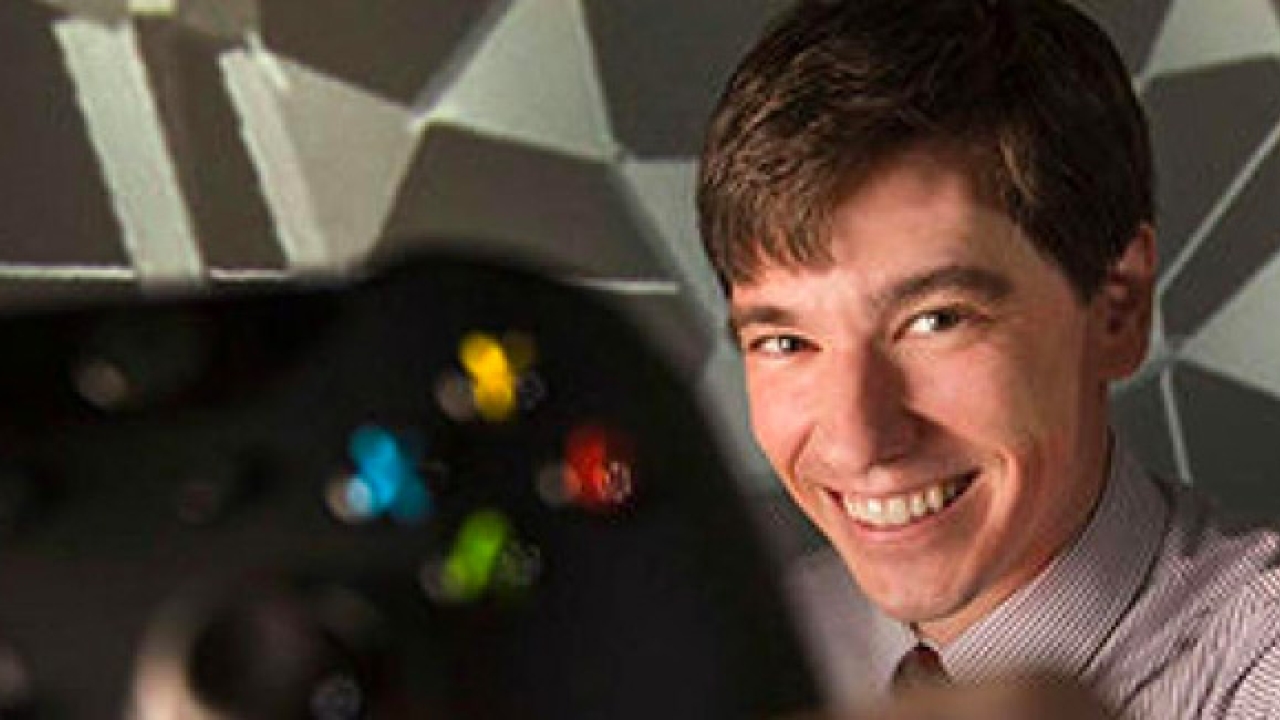
Andrew W. Mellon New Directions grant
Colin Milburn goes back to school with a prestigious Mellon New Directions grant
Colin Milburn, the Gary Snyder Chair in Science and the Humanities and professor of English, Science and Technology Studies, and Cinema and Digital Media, has been awarded a 2015 New Directions Fellowship from the Andrew W. Mellon Foundation to become a truly multidisciplinary digital humanist by learning how to code.
As the author of Nanovision: Engineering the Future (2008), Mondo Nano: Fun and Games in the World of Digital Matter (2015), and many articles on the relations of literature, science, and technology, Milburn is already an accomplished scholar of digital culture.
However, Milburn discovered that his new research into the “politics of video games and the cultural dimensions of software” required additional training. This represents “a significant turn in my scholarship, which is also reflected in my efforts to build institutional capacities in the digital humanities at UC Davis. It has become evident to me that, to succeed in this new trajectory, I need to learn to code.”
The New Directions award of $278,000 will allow Milburn to seek additional training in software development, programming, database architecture and computer science.
Milburn is most looking forward to coordinating “more coherently and effectively” with his colleagues at the UC Davis ModLab, an experimental laboratory for media research and digital humanities that is developing new tools, methods, and models of interdisciplinary collaboration for scholars at the intersection of the humanities, sciences, social sciences and the arts.
The New Directions Fellowship will allow Milburn to take a two-pronged approach to digital humanities: “critical analysis combined with critical making.”
Milburn explained, “Studying digital media and technoculture from the humanities perspective gets you to a certain point that is incredibly useful, but I’m finding that being able to approach these questions from the technical side - through software and media development, or ‘critical making’ - is just as important.”
In the collaborative work at ModLab, Milburn and his colleagues have found that learning to speak each other’s languages and develop compatible research questions and methods has advanced new research questions and opened new avenues of exploration.
Although Milburn does not necessarily see his new path as a model to emulate, he acknowledges that for scholars interested in the cultural impact of computing technologies, the more technological knowledge that can be brought to the research questions, the better. Moreover, the increasing ubiquity of computational methods and techniques presents new opportunities for training humanities and social science students to incorporate these tools.
Basic training in computer science, software development, or software carpentry/hacking can help humanities scholars to ask new research questions afforded by the computational methods of new media.
The computer science training to be provided through the Mellon New Directions grant allows Milburn to expand existing research interests and pursue entirely new ones. A recent research area and a strength of the ModLab is game culture and the impact of gaming technologies on a variety of social and cultural institutions.
A project Milburn wants to begin now explores how video game players become politicized around particular issues because of the games they play. “This project,” Milburn said, “will require a multimodal, transdisciplinary approach, involving methods such as ethnography, discourse analysis, historical research, and close attention to the media objects themselves, while also coming to grips with the ways that gamers often become attuned to the political dimensions of software and code as such.”
Emphasizing the collaborative nature of his work at the ModLab, Milburn said the first step is to sit down with his colleagues in computer science and map out the best course of study to help him achieve his educational goals - all the while with attention to the long view of how his training will further enrich the work at ModLab.
